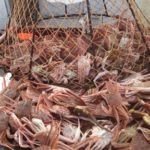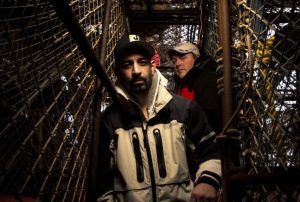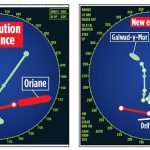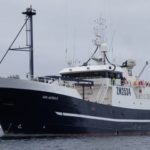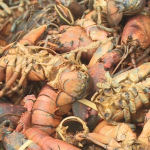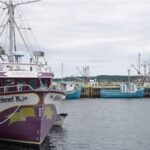Tag Archives: Recirculating Farms Coalition
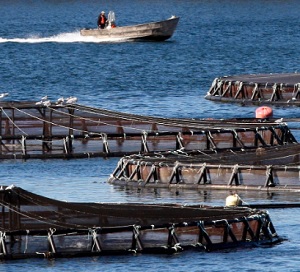
Opposition grows to expanding fin fish farming
The Trump administration and the aquaculture industry said the order, which is being implemented now, represents common sense steps to ease the burden of rules on fish farmers. “They’re trying to somehow connect open-water aquaculture with the need for domestic food. But it just doesn’t make sense,” said Marianne Cufone, executive director of the Recirculating Farms Coalition,,, Some fishing groups have also come out in support of the order. Scot Mackey, director of government affairs for the Garden State Seafood Association, which advocates for fishermen as well as farmers, said the order “will help the industry weather the current crisis and come back stronger.” Neville Crabbe, spokesman for the Atlantic Salmon Federation, a conservation group, said the federal permitting process should be creating land-based aquaculture rather than fish farms in the ocean, let alone offshore. >click to read< 18:13
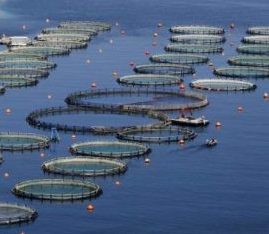
Hundred organisations opposes industrial ocean fish farming
More than a hundred organisations have formally announced their united opposition to industrial ocean fish farming in U.S. waters. According to Friends of the Earth, the move comes as some members of Congress are attempting to force through legislation to develop offshore fish farming nationwide. In a letter to members of Congress, the broad coalition representing a wide range of interests, including commercial and recreational fishing, indigenous populations, consumer advocacy, food, farming and conservation, called on legislators to protect oceans from development of marine finfish aquaculture off U.S. shores. >click to read<08:59
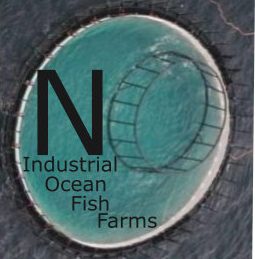
Groups March in Washington, DC During Oceans Week To Oppose Offshore Fish Farms
Today, (6/9/18) hundreds of people join together in a March for the Oceans in Washington, DC. Preventing development of industrial ocean fish farms is a prominent issue for participants, wearing pins and carrying signs with the hashtag “#dontcageouroceans”.,,, Worldwide, ocean finfish aquaculture has caused a wide range of problems, including fish escapes; deaths of sharks, seals and other marine life; and changes in ocean ecosystems. Marianne Cufone, Executive Director for the Recirculating Farms Coalition said, “Industrial open water finfish farming is an outdated and unnecessary practice. It poses serious risks to our oceans and public health.” Now, Capitol Hill legislators are developing a new initiative for industrial aquaculture in U.S. waters. Opponents are collectively rising to protect fishing communities, public health and our oceans. >click to read<12:58
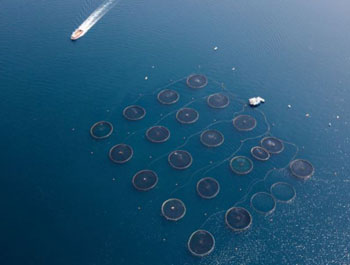
NOAA, NGOs debate effects of ocean farms on wildlife, Litigation may be deterring investors
Federal waters in the Gulf of Mexico have been open to fish farming for two years, but no farms yet exist. In January 2016, the National Oceanic and Atmospheric Administration’s National Marine Fisheries Service issued a rule that would let companies apply for 10-year permits to farm fish in federal waters of the Gulf, with five-year renewals thereafter.,, Paul W. Zajicek, executive director of the National Aquaculture Association, suspects companies interested in starting offshore farms are waiting for results of a federal lawsuit against the fisheries service.,, Those behind the lawsuit say NOAA’s fisheries service is trying to regulate aquaculture as fishing but lacks authority to expand into aquaculture. >click to read<21:43
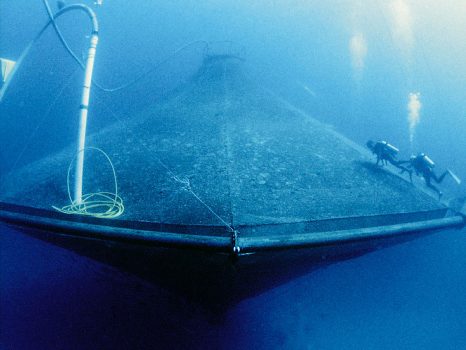
Feds must end push for ocean aquaculture
The world’s oceans are in trouble. Litter, urban runoff, dead zones, leaking oil rigs and other factors put stress on sea life, notably fish, and cause alarming changes in our marine environment. One thing we do know for sure is that we should not be adding stress and pollution to ocean ecosystems. That’s why it is so baffling that we are seeing a renewed major push by the federal government for industrial ocean fish farms. Lobbyists for the companies who build these aquaculture operations would have you believe the industry is a solution for preserving our marine environment by growing fish to ease the need for taking more fish from the wild. In reality, however, these facilities can exacerbate many of the problems already hurting our oceans. Open water fish farms are comprised of giant floating net pens with thousands of fish all eating, excreting and growing in one space. Cages used to contain fish are flow-through, meaning anything from the pens – excess feed, fish wastes, and any chemicals – can go directly into natural waters. Read the rest here 15:18
Pacific Bluefin Tuna Heads Toward Protection
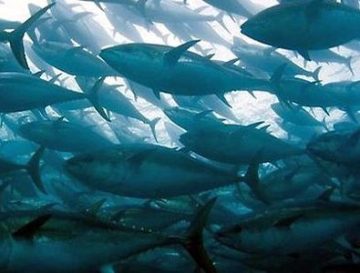 Thirteen conservation groups and a former National Fisheries biologist petitioned for federal protection for Pacific bluefin tuna, and the marine agency agreed listing may be warranted. The National Marine Fisheries Service (NMFS) announced Tuesday that it will begin a 12-month status review of the iconic fish as the first step in the long process to secure Endangered Species Act protection for the overfished species. The Center for Biological Diversity, a frequent petitioner and litigator on behalf of imperiled species, was joined by Earthjustice, Defenders of Wildlife, WildEarth Guardians, Sierra Club, Turtle Island Restoration Network, the Ocean Foundation, Center for Food Safety, Greenpeace, Mission Blue, Recirculating Farms Coalition, The Safina Center, SandyHook SeaLife Foundation, and Jim Chambers, a retired NMFS biologist, owner of Prime Seafood sustainable seafood restaurant supply company and member of the Seafood Choices Alliance. Read the rest here 08:42
Thirteen conservation groups and a former National Fisheries biologist petitioned for federal protection for Pacific bluefin tuna, and the marine agency agreed listing may be warranted. The National Marine Fisheries Service (NMFS) announced Tuesday that it will begin a 12-month status review of the iconic fish as the first step in the long process to secure Endangered Species Act protection for the overfished species. The Center for Biological Diversity, a frequent petitioner and litigator on behalf of imperiled species, was joined by Earthjustice, Defenders of Wildlife, WildEarth Guardians, Sierra Club, Turtle Island Restoration Network, the Ocean Foundation, Center for Food Safety, Greenpeace, Mission Blue, Recirculating Farms Coalition, The Safina Center, SandyHook SeaLife Foundation, and Jim Chambers, a retired NMFS biologist, owner of Prime Seafood sustainable seafood restaurant supply company and member of the Seafood Choices Alliance. Read the rest here 08:42
Center for Food Safety lawsuit challenge’s NOAA’s push for aquaculture in offshore U.S. waters
 Center for Food Safety has filed a new lawsuit challenging the National Oceanic and Atmospheric Administration’s (NOAA) new federal regulations permitting, for the first time, industrial aquaculture offshore in U.S. federal waters in the Gulf of Mexico. The plaintiff coalition CFS is representing in the case make up a broad array of significant interests in the Gulf of Mexico, including commercial, economic, recreational, and conservation groups. Read the rest here 09:09
Center for Food Safety has filed a new lawsuit challenging the National Oceanic and Atmospheric Administration’s (NOAA) new federal regulations permitting, for the first time, industrial aquaculture offshore in U.S. federal waters in the Gulf of Mexico. The plaintiff coalition CFS is representing in the case make up a broad array of significant interests in the Gulf of Mexico, including commercial, economic, recreational, and conservation groups. Read the rest here 09:09


































